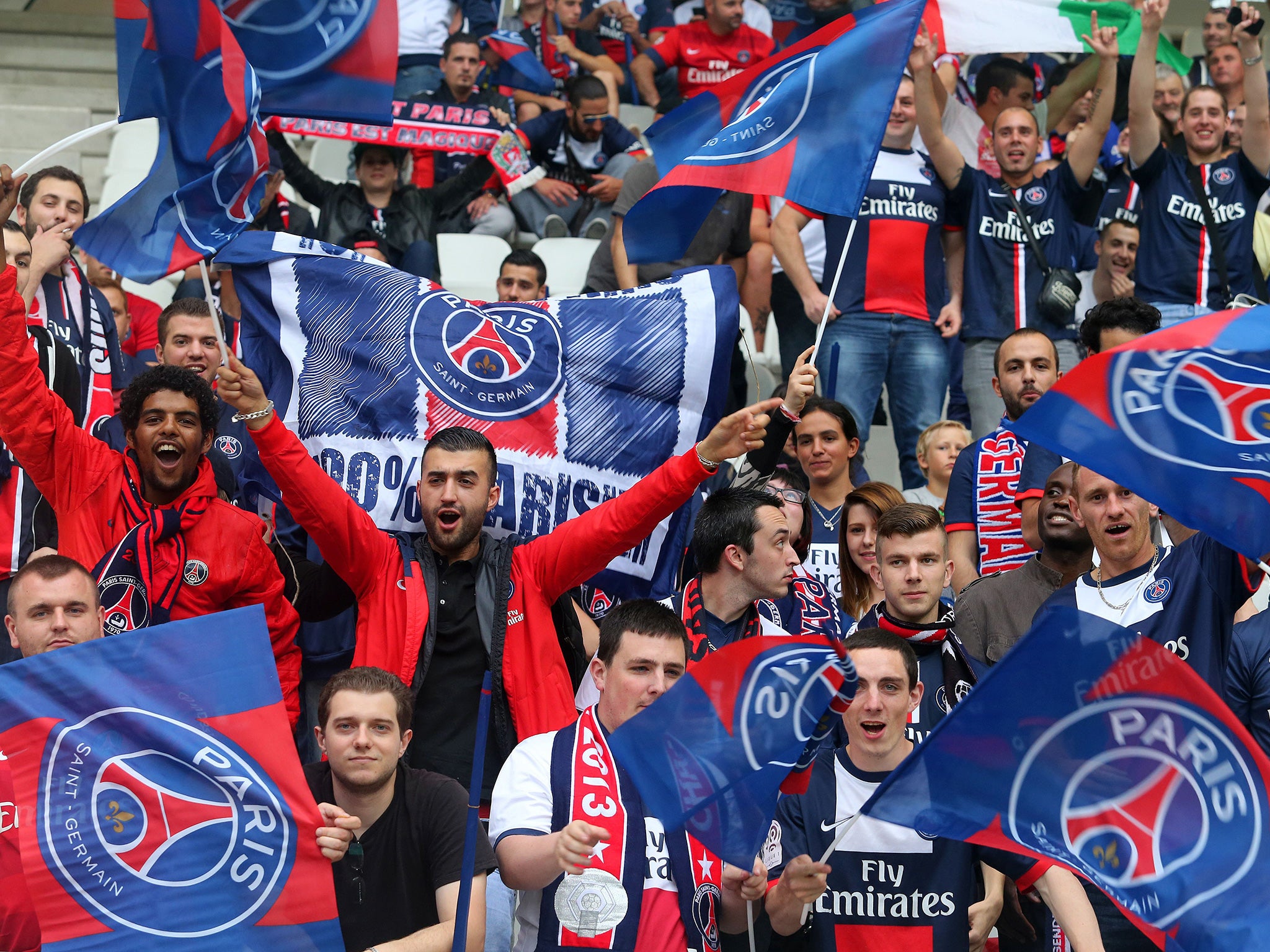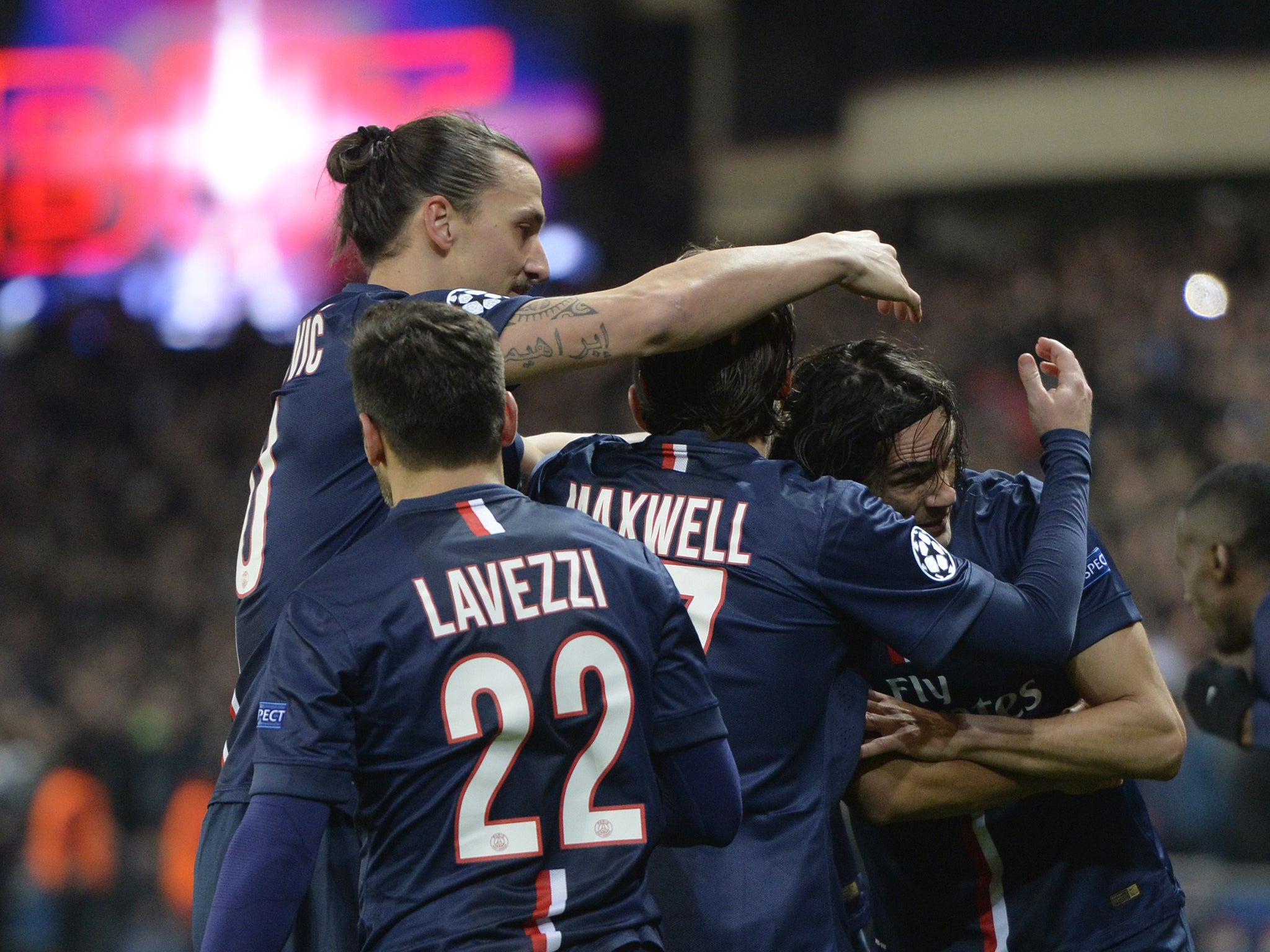How PSG's Qatari owners have reduced the racial tension
No other club in Europe has suffered such acute division of a minority of fans

Your support helps us to tell the story
From reproductive rights to climate change to Big Tech, The Independent is on the ground when the story is developing. Whether it's investigating the financials of Elon Musk's pro-Trump PAC or producing our latest documentary, 'The A Word', which shines a light on the American women fighting for reproductive rights, we know how important it is to parse out the facts from the messaging.
At such a critical moment in US history, we need reporters on the ground. Your donation allows us to keep sending journalists to speak to both sides of the story.
The Independent is trusted by Americans across the entire political spectrum. And unlike many other quality news outlets, we choose not to lock Americans out of our reporting and analysis with paywalls. We believe quality journalism should be available to everyone, paid for by those who can afford it.
Your support makes all the difference.Loathsome though it was, the behaviour of Chelsea fans in the Paris Métro was mild compared to the racist violence in the recent history of Paris Saint-Germain.
Police are still investigating the death of a fan injured in a pitched battle in 2010 between mutually detesting clans of PSG supporters divided partially on racial lines.
In the last few years, firm action by the club’s new Qatari owners has reduced the atmosphere of racial tension – or outright violence – which once surrounded PSG home games at the Parc des Princes.
Whether there are lessons for other countries is unclear. No other club in Europe has suffered such an acute division of a minority of its fans into hostile and organised “racist” and “non-racist” tribes.
Hermann Ebongué, vice-president of the pressure group SOS Racisme, has been helping and advising PSG since 2010. He told The Independent: “The problem at the Parc has been much, much, much improved. Racist incidents are maybe 85 per cent down on what they once were. What the club did – and this is a lesson for others – was to call in people who understood the problem of racism and implemented their advice.
“I noticed, for instance, that there were no stewards travelling with Chelsea fans in Paris this week. This is a mistake. PSG fans never travel without stewards to watch and report what they are doing.”
Ebongué suggests that a couple of the other anti-racism measures that he has introduced could be applied in the UK. He has a team of 50 volunteers who attend all PSG games and report on all racist or violent incidents. Most crucially of all, he said, PSG and the volunteers record on film and in sound all racist outbreaks.
“The only reason that we are all talking about the Métro incident is because someone recorded it,” Ebongué said. “To stop racists, you have systematically to record their actions and words.”

The problems at PSG had existed for many years but became critical in the period 2000 to 2010. The most passionate PSG fans, who always gathered at the Boulogne end of the ground, included a minority of far-right, white supremacists. The opposite, or “Auteuil”, end was colonised by fans who detested the “Boulogne Boys”.
The various officially recognised “clubs” at the Auteuil end included young men of North African and African origin but also many white men and women who considered themselves anti-racist and left-wing. A couple of these clubs became almost as aggressive as the minority of a few hundred racist fans at the Boulogne end.
A series of clashes culminated in a pitched brawl in 2010. The Auteuil fans were attacked by the Boulogne fans. One of the Boulogne-end supporters was beaten and kicked unconscious and later died.
Before Qatar bought PSG in 2011, the club’s owners had begun to take action. Organised “tribes” of fans were denied the blocks of season tickets which allowed them to sit together.
This policy has been implemented even more rigidly by the new owners. Many, non-violent fans or ex-fans from both “ends” are furious. They believe that the Qataris took advantage of “500 idiots” to impose a wealthier, more docile clientele.
In a long and passionate blog published last month, “Theophil”, an ex-PSG “ultra” said: “In three years the Parc has gradually changed from a popular, passionate, knowledgeable, fervent crowd to one that is richer, less committed, stupid and characterless. The Parc now resembles another park east of Paris – Disneyland.”
Ebongué rejects this. “These people don’t have a monopoly on atmosphere,” he said. “If the old atmosphere came with racism and violence attached, I prefer what we have now.”
Breaking up organised blocks of fans has little relevance for British clubs, where they have never existed.
Join our commenting forum
Join thought-provoking conversations, follow other Independent readers and see their replies
Comments